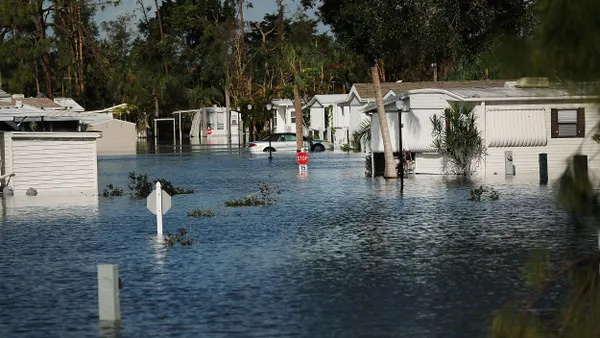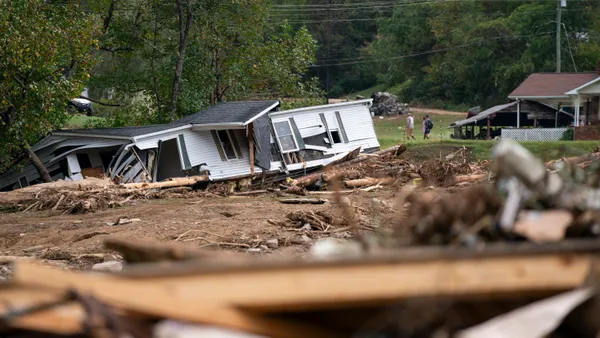Dive Brief:
- Denver's Department of Public Health & Environment has launched its Food Action Plan to cut down on food waste, while increasing food equity for all residents. A partnership with the National Resources Defense Council (NRDC) has created the two-year pilot, in which Denver aims for a 57% reduction of residential food waste in the city's trash collection by 2030.
- The first project for the greater initiative takes a multi-pronged approach to preventing food waste from going to landfill, with a strong focus on encouraging residents to compost household food scraps. Local businesses are encouraged to donate surplus food and increase their sustainability practices.
- The food action plan also strives for a 55% reduction in the number of food insecure households by 2030. This project is being funded with $200,000 from The Rockefeller Foundation.
Dive Insight:
In recent years, advocates have increased calls for Denver to boost its commitment to eliminating food waste. Last year the Colorado Public Interest Research Group released a report indicating that more than 57% of the material the city sends to landfill could be composted, and the city could do more to reduce food waste. At that time, only 6% of Denver's residents had access to curbside organics collection. The report offered steps for Denver to increase its organics collection, including expanding the service to multi-family buildings.
Denver was also one of the three cities — along with New York and Nashville, Tennessee — included in an NRDC food waste study last year, which concluded that 68% of residential food waste is potentially edible. The report suggested policy changes that cities could adopt including better public education and food recovery programs.
NRDC is one of the dominant organizations working toward reducing food waste in cities. It has forged partnerships with other cities, prior to its new one with Denver, to launch a variety of initiatives on the topic. In Nashville, it helped develop a competition in which local restaurants tracked their progress on reducing, recycling and donating surplus food. Engaging businesses through competitions is one of the stated goals of Denver's food action plan as well.
Educational campaigns will be a major aspect of Denver's new initiative and will be one of the first action items the city takes on this year. Next year a goal is to change the city's food donation policy to allow for greater use of surplus food. By 2020, the city aims to have plans in place for more residential organics recycling as well as commercial pilots.












